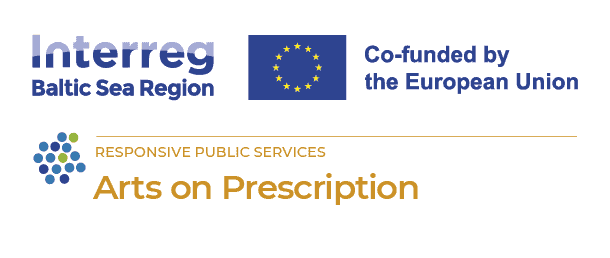
Lower risk of poor mental health through arts and culture activities
18 September 2023
A new research paper on the mental health benefits of engaging in arts and culture activities has been co-published by the University of Southern Denmark, project partner in the Interreg Baltic Sea Region project “Arts on Prescription in the Baltic Sea Region”. Based on a representative sample of the Danish adult population in 2019 and 2020, the study revealed a reduced risk of depression due to arts and culture activities
Focusing on so-called “receptive” activities, such as attending concerts, theatres, museums and cinemas, the study showed that engaging in these kinds of arts and culture activities at least once per quarter (as compared to no arts and culture activity) was associated with reduced risk of depression in 2020, both among those with and without depression in 2019. For persons without depression in 2019, the risk of developing depression (incidence) in 2020 was halved among those that engaged in arts and culture activities at least quarterly compared to those with no activity. For persons with depression in 2019, the risk of maintaining depression (persistence) in 2020 was 70-75% lower among those that engaged in arts and culture activities at least quarterly. For more details on results and analysis methods, please see the open-access paper or contact Ziggi Ivan Santini (University of Southern Denmark).
The findings align with previous literature and research, for example in England and Norway, suggesting that arts and culture engagement has preventative or mental health promoting properties, both among the population free of depression and among the population segment that is suffering from depression. While earlier studies have suggested that more frequent activity was necessary, the new study from SDU and co-authors shows that even a low frequency of arts and culture engagement of just once per quarter can have positive effects. Thus, there is good reason to include cultural and creative sectors in prevention and mental health promotion strategies, for example, by utilizing resources in the civil society and local communities both for preventing depression, alleviating symptoms among those currently suffering from depression, and for promoting mental wellbeing in the general population.
The ”Arts on Prescription (AoP) in the Baltic Sea Region” project is fostering this cross-sectorial approach by building robust links and cooperation between the health and arts sector and by supporting the implementation of AoP into regional and local health policies and initiatives via good practices and guidance.





